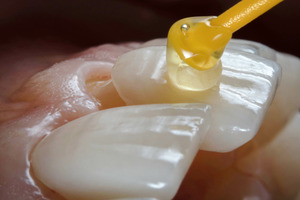
Veneers have become a popular cosmetic solution for those looking to enhance their smile. They are thin, custom-made shells of tooth-colored materials that cover the front surface of teeth to improve appearance. While veneers can effectively address issues like discoloration, gaps, or misalignment, many people wonder about their potential impact on tooth sensitivity. This concern is valid and worth exploring, as sensitivity can affect comfort and overall satisfaction with the procedure. Here’s what you should know about whether getting veneers can make your teeth sensitive, discussing the process, potential causes of sensitivity, and ways to manage it.
The Veneer Procedure and Sensitivity
The process of getting veneers generally involves a few key steps: consultation, preparation, and placement. During the initial consultation, your dentist will assess whether veneers are suitable for your needs. If so, they will proceed with preparation, which involves removing a small amount of enamel from the front of your teeth to ensure a proper fit. This removal can sometimes lead to increased sensitivity, as the teeth are momentarily exposed. Sensitivity during this stage is usually temporary and should subside once the veneers are placed and the enamel has been protected by the veneer material.
Potential Causes of Sensitivity
Several factors can contribute to tooth sensitivity after getting veneers. One common cause is the removal of enamel during the preparation phase. Enamel is a protective layer that shields the underlying dentin, which contains nerve endings. With a thin layer of enamel removed, the dentin may become more exposed, leading to increased sensitivity. Additionally, if the veneers are not fitted correctly or if there are gaps between the veneers and the teeth, this can also cause discomfort. Another factor could be an allergic reaction to the materials used in the veneers, though this is less common.
Managing and Mitigating Sensitivity
Managing sensitivity after getting veneers involves a few key strategies. First, using a desensitizing toothpaste can help reduce discomfort by blocking the transmission of sensations from the teeth to the nerves. Maintaining good oral hygiene and avoiding extremely hot or cold foods and drinks can also prevent exacerbating sensitivity. Regular follow-ups with your dentist are crucial to ensure the veneers are fitting correctly and to address any issues promptly. If sensitivity persists or becomes severe, it’s important to consult your dentist to rule out any complications and discuss potential solutions.
About Our Practice
At Cambria Smiles, our mission is not only to help patients to truly love their smile, but to make sure that the process of getting it is as easy and comfortable as it can possibly be. To that end, we have outfitted our office both with the latest dental technology and with all of the create comforts you need to enjoy your stay here. We also do what we can as dental professionals to support our patients in any way that they would need.
If you have any questions about veneers, we can be reached at our website or by phone at (805) 927-4811.


